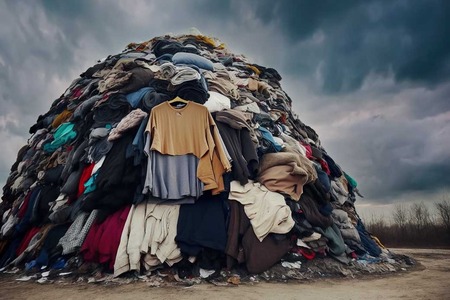
African countries to begin export cotton duty and quota free
YarnsandFibers News Bureau 2015-12-29 11:00:00 – NairobiThe World Trade Organization’s 10th Ministerial Conference held in Nairobi, Kenya, from December 15 to 19, was the first such meeting hosted by an African nation where the ministers agreed on a deal that will allow least developed countries (LDCs) to export more cotton to developed countries. Following a global deal sealed, African countries mainly Burkina, Faso, Benin, Chad and Mali and other developing countries can begin to export their cotton to developed countries duty-and quota-free from from beginning of next year, January1, 2016.
This will help LDCs, mainly those in sub-Saharan Africa, to gain greater access to non-producing foreign markets because of the suppressed Customs and taxes. The agreement includes three key elements -- on market access, domestic support and export competition.
The agreement also mandates developed countries to prohibit cotton export subsidies immediately and for developing countries to do so at a later date.
According to the Nairobi WTO Declaration signed by all the 162 trade ministers, all cotton subsidies to the developed and developing countries are to be stopped in 2017.
The decision on cotton export subsidies was part of an overall agricultural commitment to eliminate subsidies for farm exports.
WTO director-general Roberto Azevedo described the agreement as the most significant outcome in agriculture in WTO's 20-year history.
Peter Kiguta, Director-General of Customs and Trade at the East African Community, said that extensive cotton subsidies in rich countries, especially the US -- where subsidies given to American cotton producers are 60 percent more than the total GDP of Burkina Faso, for example -- have led to an artificial increase of supplies in international markets and a fall in export prices.
Any special treatment given to African cotton would also benefit potentially competing cotton exporters such as Brazil."
However, Joshua Setipa, Minister of Trade and Industry of Lesotho and moderator of the WTO cotton negotiations in Nairobi, said that members did not agree on early harvest demands or on a demand by African countries for the concept of special products under WTO to be extended to cotton as it applied to products that were not competitive in the international market.
Benin, Burkina Faso, Mali and Chad -- the main cotton exporters in Africa -- have been at the forefront of pushing for the removal of subsidies and domestic support, which have a distorting effect on the international cotton market.
Developed countries like the US have opted for domestic support and subsidization policies in the cotton sector. The subsidies drive down prices, making it hard for small farmers in poor countries to compete in international markets.
The US has retained its place as the world's second-largest cotton grower after China by paying out $12.5 billion in government subsidies to its farmers between August 1999 and July 2003. China is the largest exporter of cotton, while Brazil is fifth.
The US Congress is also still considering a new Farm Bill that would leave farm subsidies largely unchanged.This would be tragic for the millions of people in developing countries whose livelihoods are threatened on a daily basis because of US agricultural subsidies, said Mr Kiguta.
At the meeting, the Ministers also adopted a Ministerial Decision on Public Stockholding for Food Security Purposes. The decision commits members to engage constructively in finding a permanent solution to this issue.
Market Intelligence
Ask for free sample Report

experience
Customer Base
dedicated team
Countries Served Worldwide









